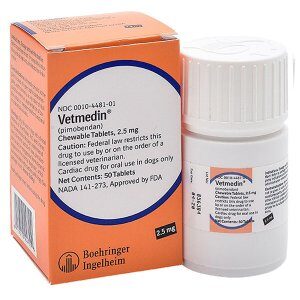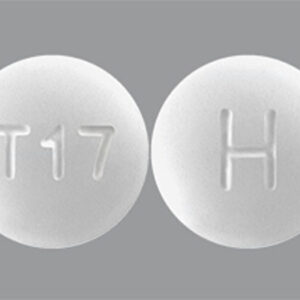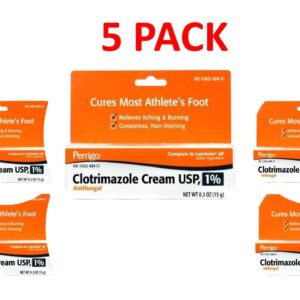Delivery Method: VIA UPS Reference #: 320-25-56 Product: Drugs Recipient:
Recipient Name
Mr. Ye Lin Chairman
Recipient Title
General Manager, and Owner
Huangshi Hygienic Material Medicine Co., Ltd.
386 Shenxia Road
Huangshi Shi
Hubei Sheng, 435003
China
Issuing Office: Center for Drug Evaluation and Research (CDER)
United States
Warning Letter 320-25-56
March 24, 2025
Dear Mr. Lin,
The United States Food and Drug Administration (FDA) inspected your drug manufacturing facility, Huangshi Hygienic Material Medicine Co., Ltd., FEI 3005543486, at 386 Shenxia Road, Huangshi, Hubei, 435003, from August 26 to 30, 2024.
This warning letter summarizes significant violations of Current Good Manufacturing Practice (CGMP) regulations for finished pharmaceuticals. See Title 21 Code of Federal Regulations (CFR), parts 210 and 211 (21 CFR parts 210 and 211).
Because your methods, facilities, or controls for manufacturing, processing, packing, or holding do not conform to CGMP, your drug products are adulterated within the meaning of section 501(a)(2)(B) of the Federal Food, Drug, and Cosmetic Act (FD&C Act), 21 U.S.C. 351(a)(2)(B).
We reviewed your September 20, 2024 response to our Form FDA 483 in detail and acknowledge receipt of your subsequent correspondence.
During our inspection, our investigators observed specific violations including, but not limited to, the following.
1. Your firm failed to have, for each batch of drug product, appropriate laboratory determination of satisfactory conformance to final specifications for the drug product, including the identity and strength of each active ingredient, prior to release (21 CFR 211.165(a)).
Your firm failed to perform appropriate testing on your drug products prior to release for distribution. Your facility management stated to our investigator that testing for identity and strength of each active ingredient prior to release had not been performed for approximately (b)(4) batches manufactured for the U.S. market.
Full release testing, including for identity, strength, and purity, must be performed prior to batch release and distribution. Without adequate finished product release testing, you do not have scientific evidence that each batch of drug product conforms to appropriate specifications before release.
In your response, you state that exported products are manufactured using the same process and formulation as domestic products. As a result, the internal quality standards for export products are based on those for domestic sales products, which does not require testing for identity or quantity of active ingredients.
Your response is inadequate. You state that your internal quality standards and operating procedures for export products will be revised to include the identity or quantity of active ingredients. Both identity and quantity of active ingredients testing are required to be performed prior to release. You fail to assess the risk of drugs products that were released to the U.S. market without adequate testing. In addition, you do not discuss your plan to perform validation (or verification, as appropriate) of your test methods.
In response to this letter, provide:
- A list of chemical and microbial specifications, including test methods, used to analyze each lot of your drug products before a batch disposition decision.
o An action plan and timelines for conducting full chemical and microbiological testing of retain samples to determine the quality of all batches of drug product distributed to the United States that are within expiry as of the date of this letter.
o A summary of all results obtained from testing retain samples from each batch. If such testing reveals substandard quality drug products, take rapid corrective actions, such as notifying customers and product recalls.
2. Your firm failed to assure that the drug product bore an expiration date that was supported by appropriate stability testing (21 CFR 211.137(a)).
Your firm failed to establish an adequate stability program and lacked chemical and microbial testing data to demonstrate that your over-the-counter (OTC) drug products will remain acceptable throughout their assigned expiry period.
You assigned U.S. marketed product expiration dates based on your domestic (China) product stability testing. However, the formulations and components for products intended for the U.S. market differed from your domestic product formulations.
In your response, you state you communicated with distributors of products marketed in the United States to request samples of each product for stability testing.
Your response is inadequate. You do not provide sufficient information regarding the batches, formulation, analytical method, and testing interval for the remaining expiry period. We acknowledge that you have not shipped product to the U.S. market since (b)(4). However, your drug products in the U.S. market will expire by (b)(4). For products without appropriate stability studies, you lack sufficient scientific evidence to support that the drug products will meet established specifications and retain their quality attributes throughout their labeled expiry. Please refer to 21 CFR 211.166, “Stability testing,” for the requirements of stability testing.
In response to this letter, provide:
- A comprehensive assessment and CAPA plan to ensure the adequacy of your stability program. Your remediated program should include, but not be limited to:
o Stability indicating methods.
o Stability studies for each drug product in its marketed container-closure system before distribution is permitted.
o An ongoing program in which representative batches of each product are added each year to the program to determine if the shelf-life claim remains valid. Include your plan to ensure appropriate procedures are in place regarding maintaining reserve samples as required under 21 CFR 211.170.
o Detailed definition of the specific attributes to be tested at each station (timepoint). - All procedures that describe these and other elements of your remediated stability program.
- Provide interim measures to ensure that products currently in the U.S. market meet the required quality attributes.
- A comprehensive, independent assessment of your chemical and microbiological drug test methods to determine the suitability of the method. If verification or validation is needed, provide a plan and timeline for completion of the appropriate activity.
CGMP Consultant Recommended
Based upon the nature of the violations we identified at your firm, you should engage a consultant qualified as set forth in 21 CFR 211.34 to evaluate your operations and to assist your firm in meeting CGMP requirements if your firm intends to resume manufacturing drugs for the U.S. market. The qualified consultant should also perform a comprehensive six-system audit1 of your entire operation for CGMP compliance and evaluate the completion and efficacy of your CAPAs before you pursue resolution of your firm’s compliance status with FDA.
Your use of a consultant does not relieve your firm’s obligation to comply with CGMP. Your firm’s executive management remains responsible for resolving all deficiencies and systemic flaws to ensure ongoing CGMP compliance.
Conclusion
The violations cited in this letter are not intended to be an all-inclusive list of violations that exist at your facility. You are responsible for investigating and determining the causes of any violations and for preventing their recurrence or the occurrence of other violations.
Correct any violations promptly. FDA may withhold approval of new applications or supplements listing your firm as a drug manufacturer until any violations are completely addressed and we confirm your compliance with CGMP. We may re-inspect to verify that you have completed corrective actions to any violations.
Failure to address any violations may also result in the FDA refusing admission of articles manufactured at Huangshi Hygienic Material Medicine Co. Ltd., 386 Shenxia Road, Huangshi, Hubei, into the United States under section 801(a)(3) of the FD&C Act, 21 U.S.C. 381(a)(3). Articles under this authority that appear to be adulterated may be detained or refused admission, in that the methods and controls used in their manufacture do not appear to conform to CGMP within the meaning of section 501(a)(2)(B) of the FD&C Act, 21 U.S.C. 351(a)(2)(B).
This letter notifies you of our findings and provides you an opportunity to address the above deficiencies. After you receive this letter, respond to this office in writing within 15 working days. Specify what you have done to address any violations and to prevent their recurrence. In response to this letter, you may provide additional information for our consideration as we continue to assess your activities and practices. If you cannot complete corrective actions within 15 working days, state your reasons for delay and your schedule for completion.
Send your electronic reply to CDER-OC-OMQ-Communications@fda.hhs.gov. Identify your response with FEI 3005543486 and ATTN: Marva Taylor.
Sincerely,
/S/
Francis Godwin
Director
Office of Manufacturing Quality
Office of Compliance
Center for Drug Evaluation and Research
Cc: Mr. Sen Lin, Vice President of Operations
linsen@hswcpharma.com
_______________________
1 i.e. Quality System, Facilities & Equipment System, Materials System, Production System, Packaging & Labeling System, and Laboratory Control System per FDA’s guidance document Quality Systems Approach to Pharmaceutical CGMP Regulations.






